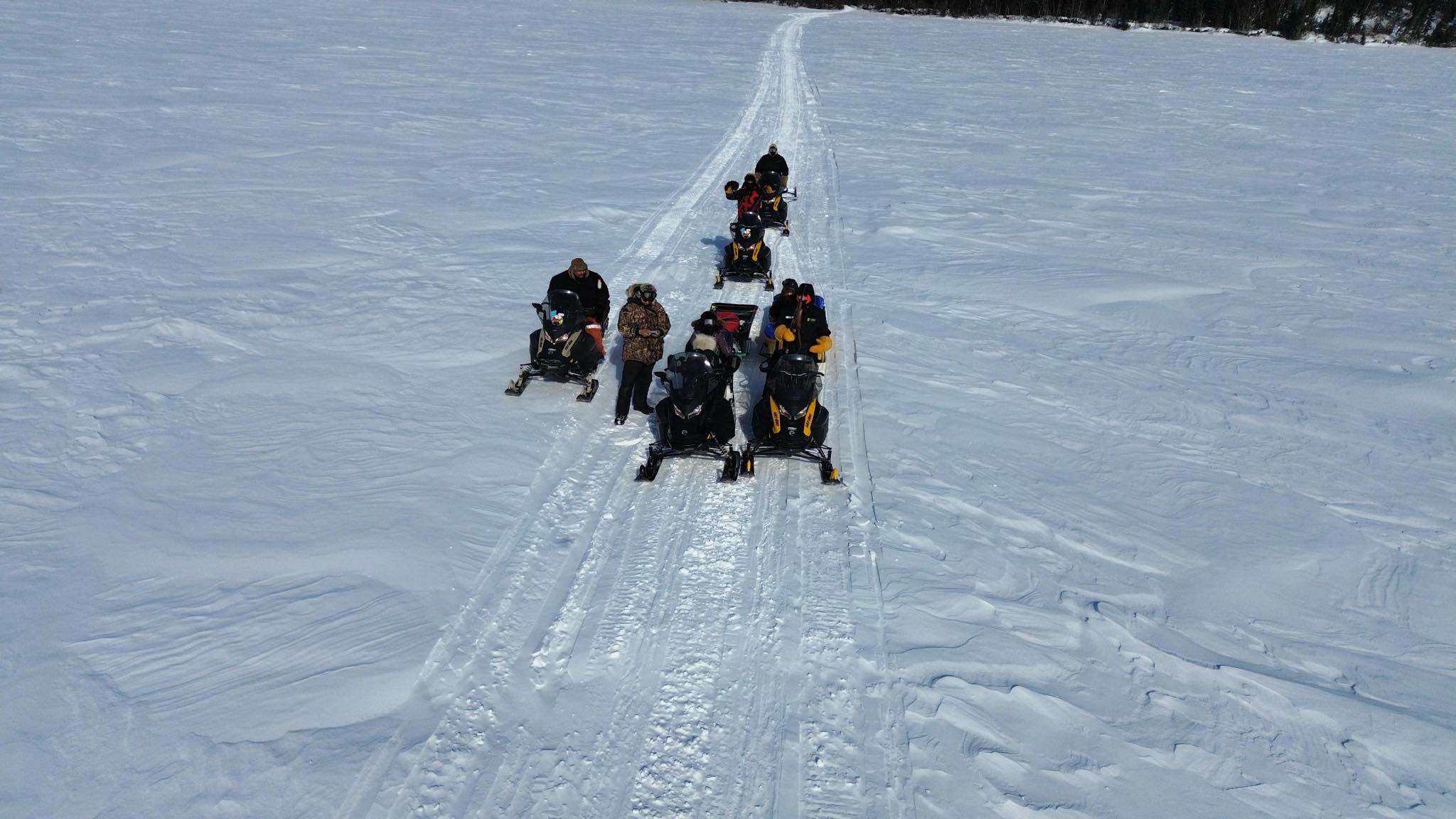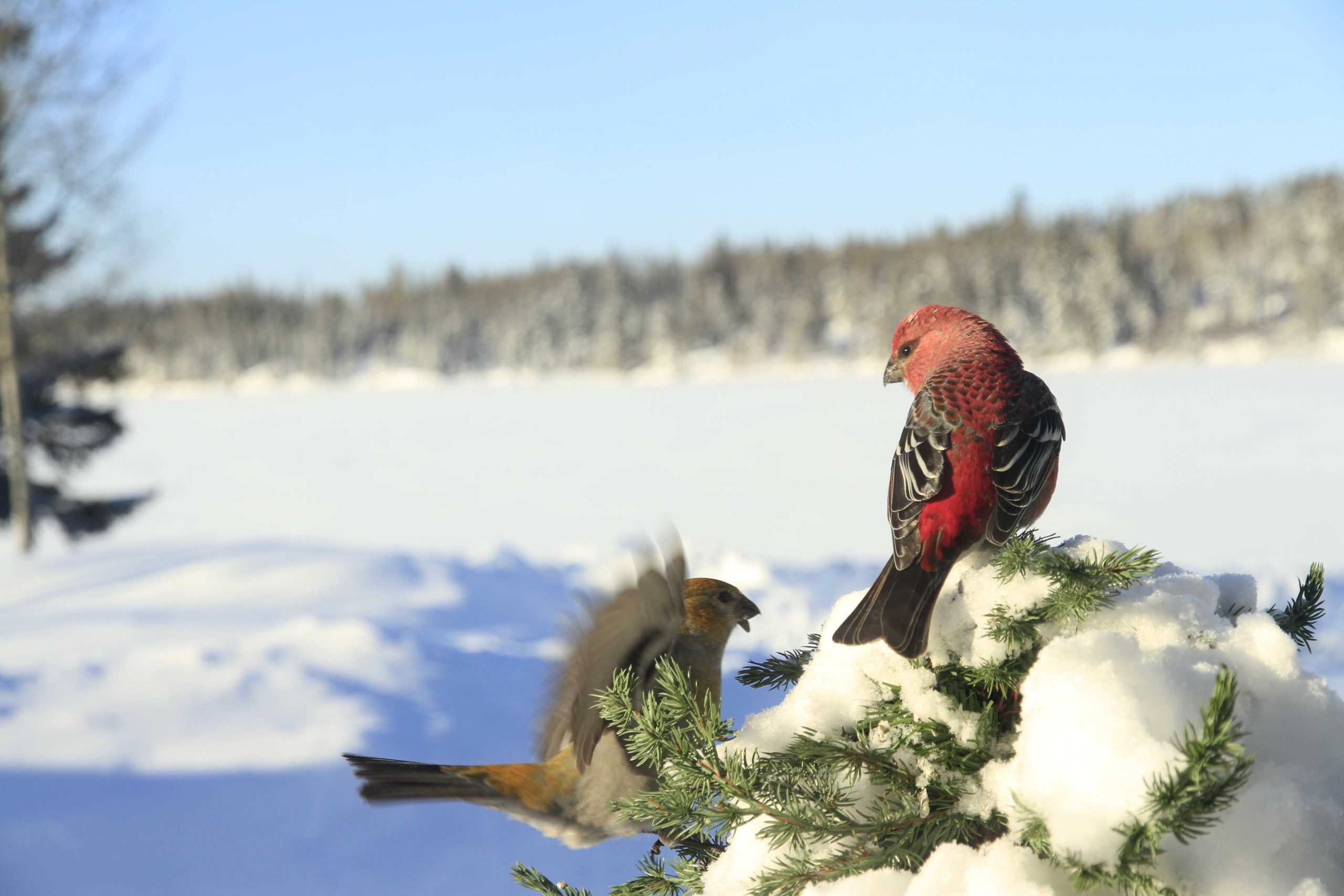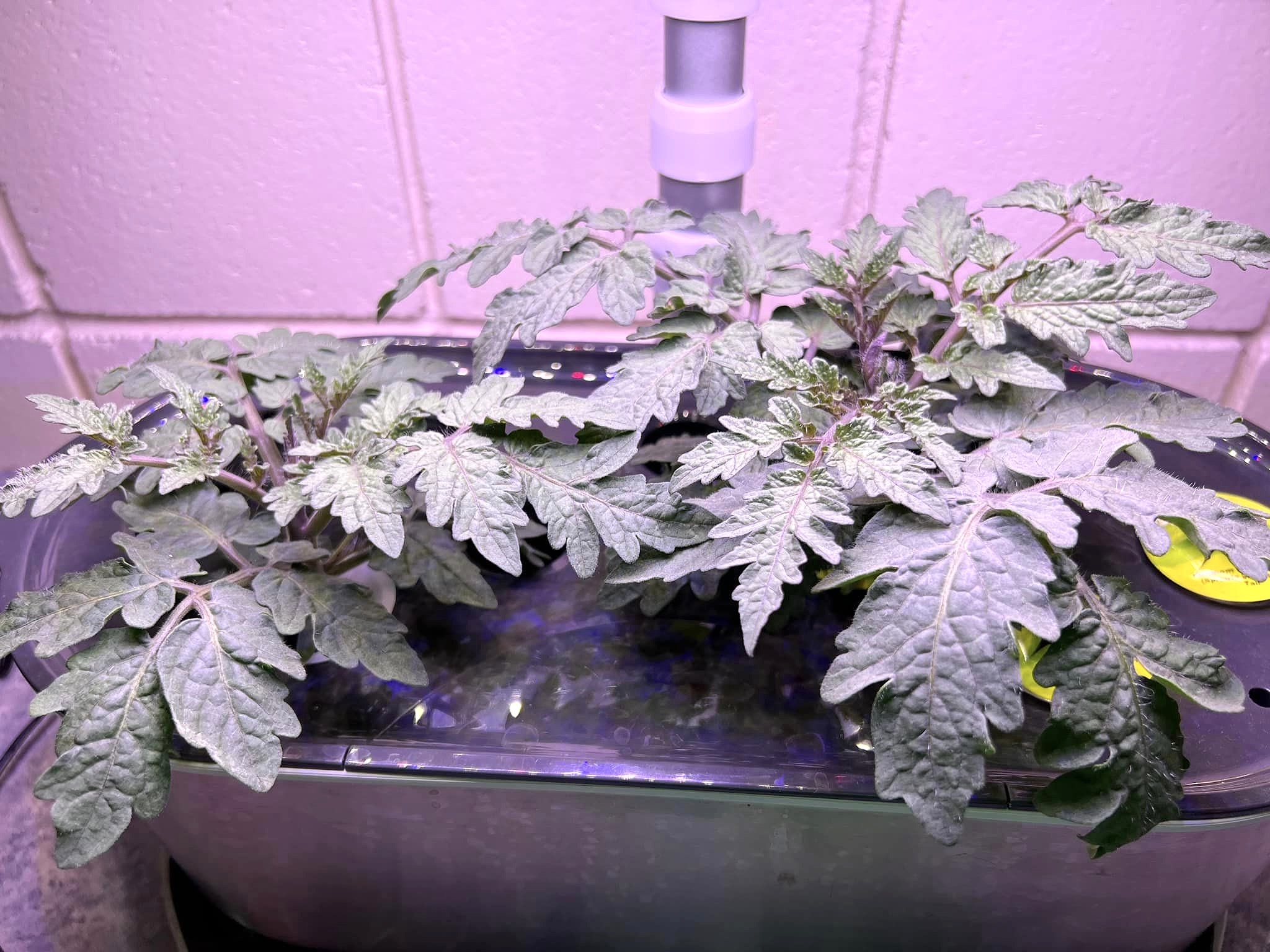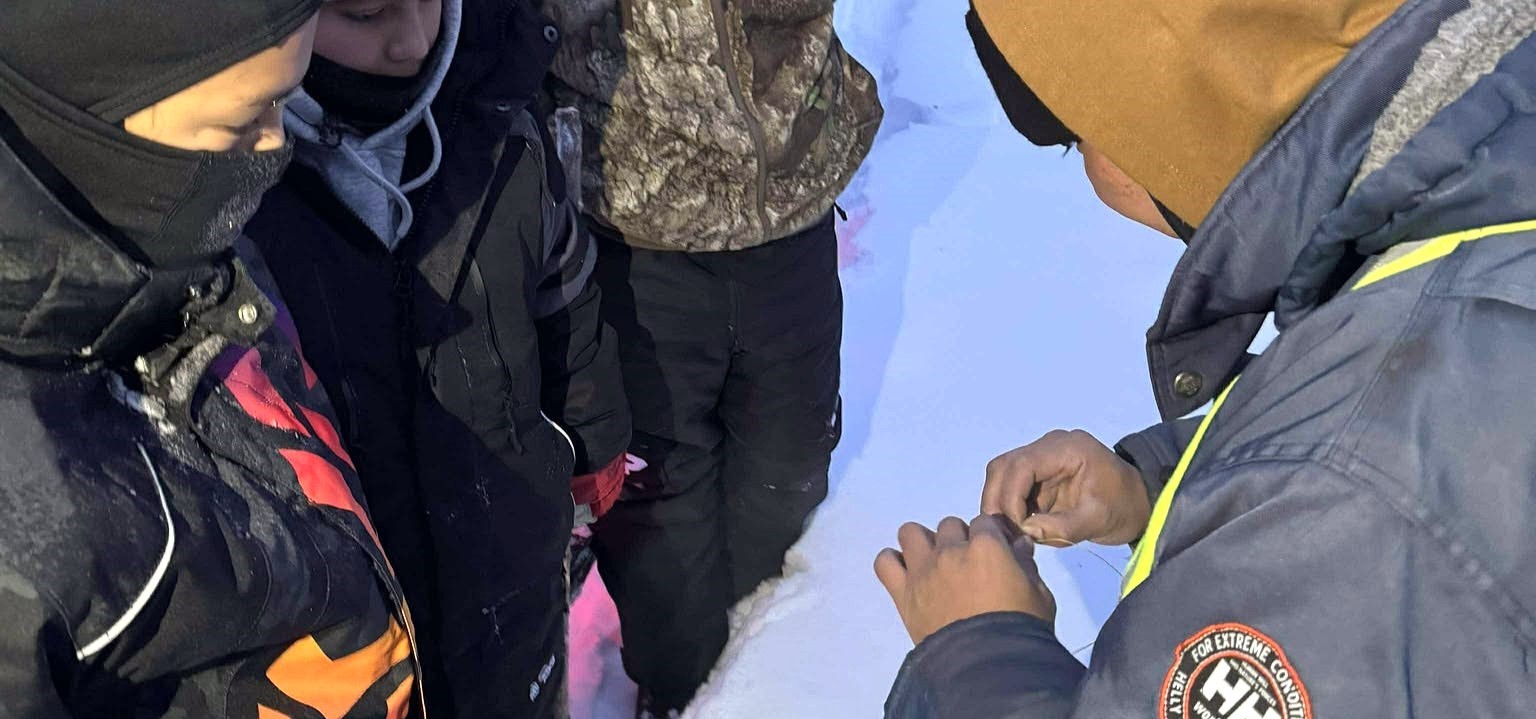In December, youth rabbit snaring clubs organized by Food Matters Manitoba (FMM) began in Makeso Sakahikan (Fox Lake/Gillam) and Kisipakamak (Brochet).
The rabbit snaring clubs are part of a larger scale FMM project that receives funding from the Public Health Agency of Canada, under the Type 2 Diabetes Prevention Challenge. The project is intended to teach land-based skills to the youth – taught and facilitated by local harvesters with tailored seasonal conditions, as a way to promote health and well-being.
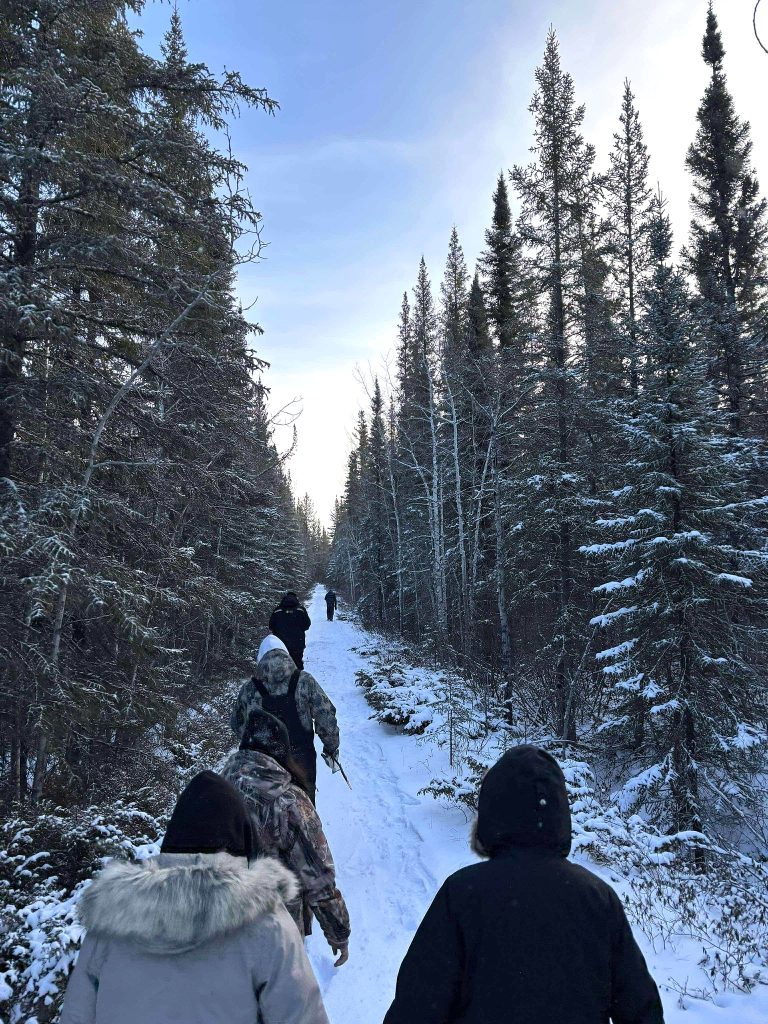
Youth in Makeso Sakahikan participating in the rabbit snaring club. Drayden Jobb
The project includes instructional units that introduce a new land-based topic – rabbit snaring, moose hunting, or fishing, for example, will give the youth opportunities to enroll in and participate in multi-day courses.
The youth participating will then share their harvests for a traditional community feast .
“This project will result in a strengthened community using traditional knowledge to create a healthier community in spirit, mind, and body,” says FMM’s Northern Coordinator, Morgan McCurdy.
In Makeso Sakahikan, the rabbit snaring clubs consist of a club during school hours and an additional after school club. The clubs are facilitated by Northern Community Facilitator and harvester Drayden Jobb, along with youth harvesters Tegan Lockhart and Cameron Saunders.
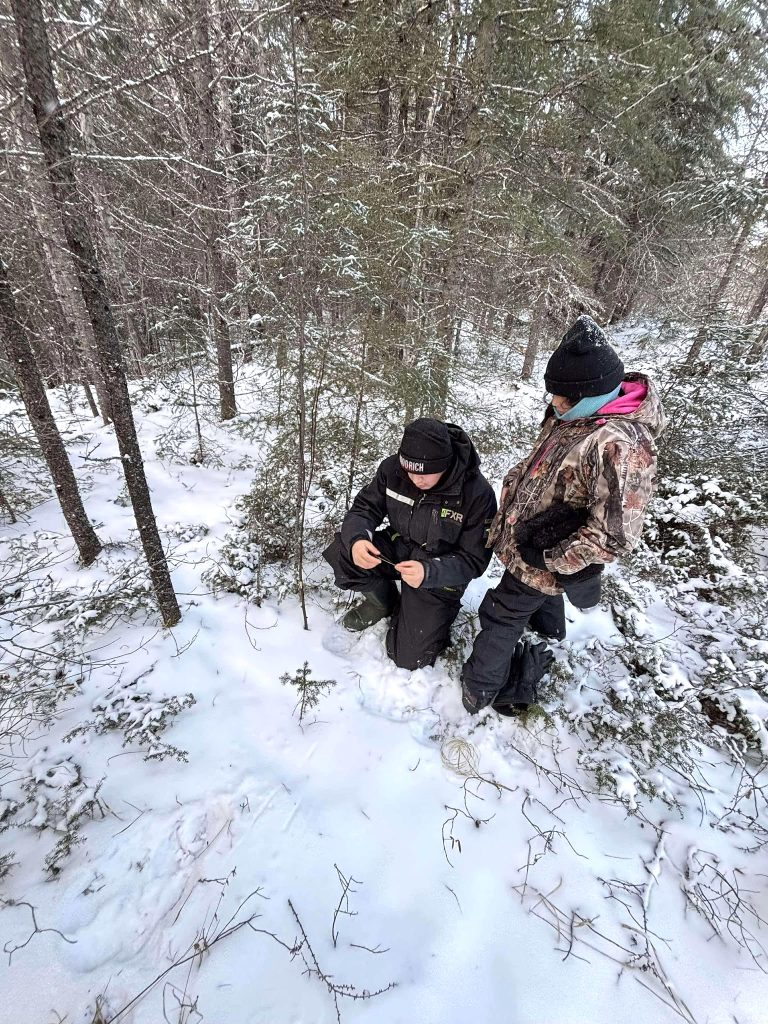
Cameron Saunders showing youth how to set a snare. Drayden Jobb
As the groups of youth dress in warm attire, they are guided out onto the land by their harvesting mentors, learning the best location for, and how to make and set snares.
The harvesters facilitating the clubs in both partnered communities have been routinely bringing the youth out onto the land since the clubs began. They agree this initiative is a great hands-on learning experience to teach the youth traditional knowledge.
“We try to teach them the proper practices, and in order to do so they need proper clothing, the right equipment, and to know which tools to use,” says Cook who is facilitating the Kisipakamak club alongside Northern Community Facilitator, John Halkett. “Also, track identification is important, along with navigational skills and location.”
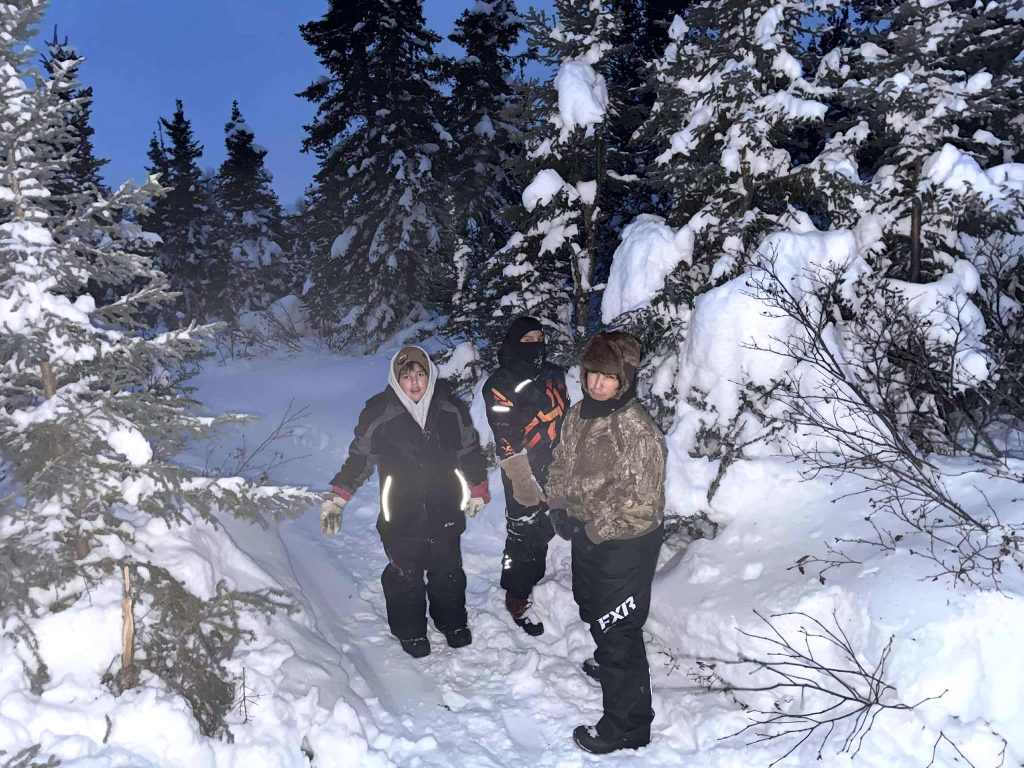
Youth in the rabbit snaring club in Kisipakamak. Myron Cook
In Kisipakamak, the weather so far has been the main challenge. With extreme cold warnings, Cook notes how important it is to not risk anyone’s safety and stay indoors.
The snowfall has also posed some difficulties.
“The deep snow was also a challenge along with the heavy snowfall which kept covering our snares,” he adds.
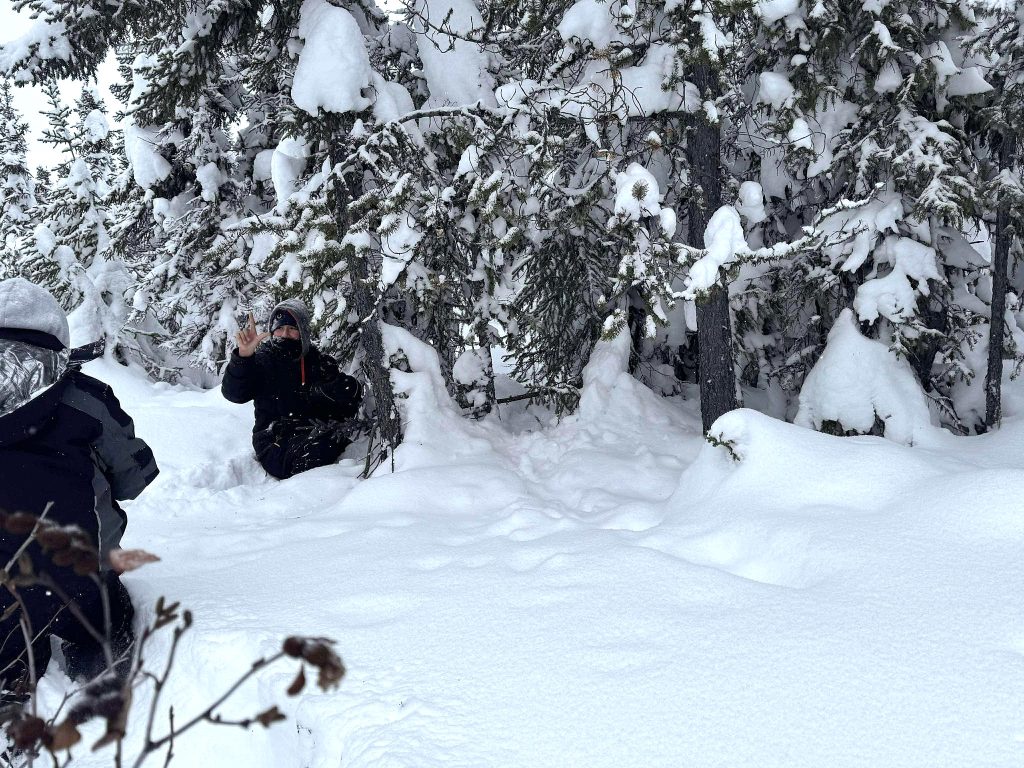
Heavy snowfall in Kisipakamak when checking snares. Myron Cook
Despite a few weather related challenges, the youth participating have been checking their snares frequently, and will learn about cleaning and processing the rabbits prior to the community feast.
According to Cook, the youth have been thoroughly enjoying the club – learning important land-based skills.
“The kids are really having a good time and are very enthusiastic,” says Cook. “It gives them something to do. Some kids already experienced rabbit snaring but the ones who didn’t are already learning how to make proper set ups without my assistance.”



